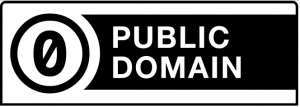[Editor note: This guest blog post is from Lynn Schriml, who is an Associate Professor at the University of Maryland School of Medicine, the PI of the Disease Ontology, and a close collaborator on the Gene Wiki project.]
 Licensing of bioinformatics resources through Creative Commons licensing enables their free distribution of the content of the resource thus enabling open sharing, use, and expansion (derivative works) of the content.
Licensing of bioinformatics resources through Creative Commons licensing enables their free distribution of the content of the resource thus enabling open sharing, use, and expansion (derivative works) of the content.
This month (as of April 5, 2017) the Disease Ontology (DO) project has updated our data content licensing from CC BY 3.0 (Attribution) to CC0 (the most open license) to enhance collaboration and sharing. While we will continue to encourage users of the DO to cite our publications (available on our DO website: www.disease-ontology.org), broader licensing will encourage greater usage of this biomedical ontology. It is important to point out that attribution demonstrates usage of bioinformatic resources, which is critical to demonstrate utility and a broad user community for grant applications to fund project development. But we are convinced by the argument that requests for attribution that are encoded in the legal license are both ineffective and counterproductive. (And other links in this discussion reinforced our conclusion.)
With the development of CC0 licensing and recent adoption by other important biomedical resources (e.g., CIVIC, WikiPathways, ECO) , it has become clear that for our biomedical ontology to be most useful, it has to be free of content licensing restrictions. The DO was created and shared for it to be used, thus open content licensing is the most appropriate license for this project. Classification of human diseases is a complex endeavor, one that is best approached in an open, collaborative and community-data-driven environment.
